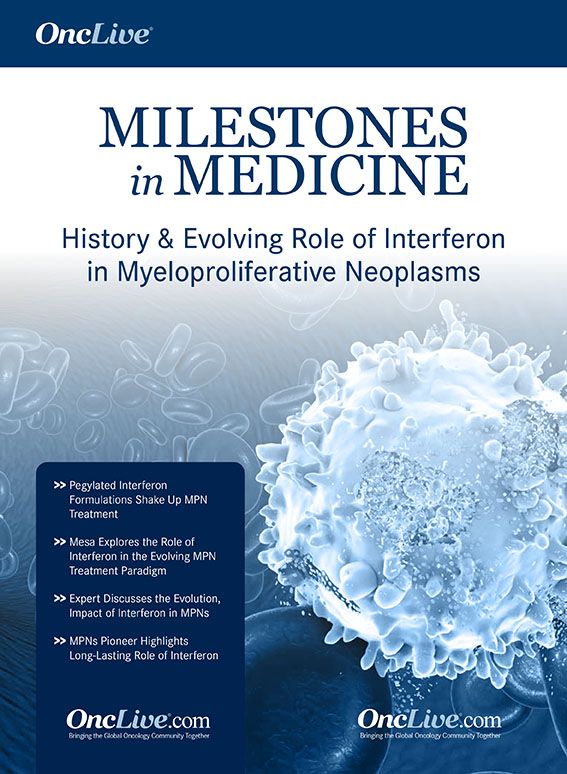Dr. Kiladjian on the RUXOPeg Trial in Myelofibrosis
Jean-Jacques Kiladjian, MD, PhD, professor of clinical pharmacology, Paris Diderot University, consultant hematologist, head, Clinical Investigation Center, Saint Louis Hospital, Paris, France, discusses the RUXOPeg trial in myelofibrosis.
Jean-Jacques Kiladjian, MD, PhD, professor of clinical pharmacology, Paris Diderot University, consultant hematologist, head, Clinical Investigation Center, Saint Louis Hospital, Paris, France, discusses the RUXOPeg trial in myelofibrosis.
The RUXOPeg trial examined the combination of ruxolitinib (Jakafi) and pegylated interferon alfa-2a (Pegasys) in patients with myelofibrosis, explains Kiladjian. Although ruxolitinib has not been shown to affect the disease history of myelofibrosis, interferon has demonstrated reduced molecular response and clinicohematologic responses. However, the agent has a high toxicity profile, says Kiladjian. If ruxolitinib’s anti-inflammatory properties could counteract the toxicity of interferon, it was believed that the combination could improve the rate of molecular response and clinicohematologic responses.
According to results presented at the 2018 ASH Annual Meeting, the combination was well tolerated. In the first 16 patients enrolled in this study, there were no dose-limiting toxicities, says Kiladjian. Based on these results, investigators are planning to proceed to the second part of the study, which will randomize patients to the 2 highest dose combinations in order to further assess the combination’s efficacy.




